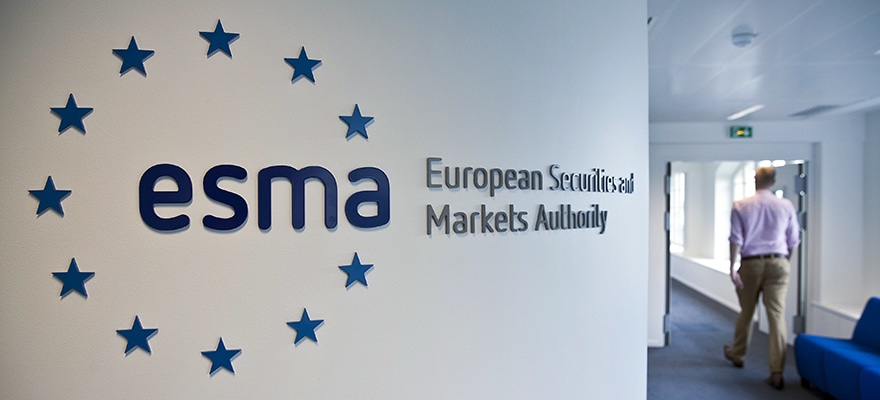From Brexit , MiFID III to a virulent pathogen changing the globe, in the first of our series, we looked at regulatory trends for the 2020s. In this article, we look at digitalisation of financial assets, the Securities Financial Transaction Reporting (SFTR) regime and the emergence of island nations as the mainstream jurisdictions of choice for FX and CFD brokers.
Cryptocurrency
Following the turbulence of Cryptocurrencies in 2017, cryptocurrency has for many been all but forgotten. We expect cryptos to become more prevalent this decade, however, as the market matures, we predict some of the nefarious behaviour that we have seen will fade. Cryptos of the 20’s are unlikely to be the ICOs and currencies seen in the last few years but will see digitalisation of more traditional assets. Already, we have seen commodities such as precious metals and gold using distributed subledger technology to digitise the asset. More traditional assets including stocks, bonds, real estate are expected to be tokenised using distributed ledger technology.

Quinn Perrott, Co-CEO of TRAction
Exotic assets such as intellectual property and paintings might also follow. Already investors are using luxury goods as investible stored value. A 2017 study found that the price of Hermès Birkin bags has increased 500% in the last 35 years, an increase of 14% per year with some bags worth as much as USD 500,000. Leading the way for crypto currency regulation is European island nation, Malta. Malta’s authority in crypto was gleaned from the introduction of three definitive statutes in 2018. The legislative triumvirate consists of the Virtual Financial Assets Act 2018 (VFA Act); the Malta Digital Innovation Act 2018 (MDIA) and the Innovative Technology Arrangement and Services Act 2018 (ITAS Act). The VFA Act regulates Initial Coin Offerings, cryptocurrencies and wallet providers including prospectus procedure and content requirements. The MDIA Act introduces a new regulatory authority for digital ledger technology, the Malta Digital Innovation Authority which certifies all distributed ledger technology platforms. While the ITAS Act regulates exchanges and companies operating in the crypto industry.
Securities Financing Transaction Reporting
Other regulation of note includes the Securities Financing Transaction Reporting (“SFTR”) regime. SFTR was implemented in the EU in response to the Financial Stability Board’s August 2013 policy report on securities lending. SFTR aims to mitigate risks relating to using financial instruments as collateral, providing detailed disclosure to investors on the use of securities financing transactions including disclosing total return swaps and requiring counterparties to disclose securities financing transactions to a trade repository to provide transparency to regulators on the use of these arrangements by market participants.
Island Nation
With leverage restrictions introduced in Europe in August 2018, the industry experienced a flight of clients and volume to Australia. Volumes in Australia increased by 100% while client numbers also surged 121%. This trend was apparent in Finance Magnate’s recent Q1 2020 Intelligence Magazine as illustrated above.
With Australia’s proposed leverage restrictions on foot, the next common denominator is for clients to be ‘papered’ with Island Nations such as Saint Vincent and the Grenadines, Bahamas, Vanuatu and Mauritius. There has been an observable trend of many firms in Europe and Australia becoming licensed in these island nations. In a survey conducted on 20 licensed firms in Australia in September 2019, four stated that they had already opened an offshore brokerage in an island nation in anticipation of the change in rules. Eight stated that they were undecided as to whether they would do so. Certainly perceptions have changes, with Finance Magnates Magazine noting “the migration of clients themselves have caused the whole industry to look at foreign jurisdictions differently. It is important to highlight that, a few years ago, heading offshore was seen as an indicator of dubious business practices, but currently, heading overseas looks like a more reasonable step for business than it was back in 2015-2018”. While it will take a few years for this to play out, there are a number of scenarios which could occur. Investor confidence in island nations could increase and we could see island nation brokers as the new norm. It should be stressed that it only takes one misguided big island broker to ‘blow up’ for confidence to erode and a flight to the safety of traditional jurisdictions. International Bodies such as the International Organization of Securities Commissions (more commonly referred to by their acronym IOSCO, the body has been the driving force for the implementation of leverage caps) could intervene and enforce equivalence measures in these island nations removing any regulatory edge which they may have been previously afforded. Similarly, governments could apply diplomatic pressure on these island nations. Such a scenario is not unprecedented. In April 2019, ASIC released guidance with regard to the onboarding of Chinese clients. Pundits have speculated that the media release was written in haste and initiated by pressure from Beijing to curb the number of Chinese clients onboarded with Australian brokers – while such speculation is difficult to authenticate, regulators do communicating with one another and it is not uncommon for one regulator to make a request of another regulator to make regulatory interventions.
One unknown, how regulators will deal with the impact of SARS-CoV2, some regulators including ASIC have already asserted that in this uncertain time the corporate cop will be focusing on essentials and will not introduce new regulations. This is likely to delay the proposed market intervention. With unemployment reaching near record highs in an unprecedented short period, there is the possibility that ASIC avoids implementing any Instruments which could increase unemployment. While ASIC has remained silent on its intentions on whether it will proceed with its previous proposals, it is worth noting that volatility within the equity market is likely to yield similar client loss rates to the CFD industry. Looking at the island nations and how SARS-CoV2 might influence their corporate regulators – the Seychelles which derives 70% of their Gross Domestic Product (GDP) from tourism had no visitors in the first week of April. The profound economic impact could see Island nations seek to bolster national income through the encouragement of an FX Industry. With the economic fallout, leverage which international organisations may have had in influencing convergent regulation could be greatly reduced. Optimistic market participants are hopeful that an initial flight to island nations may spur the regulators to reconsider their regulatory approach. It is possible that regulators could analyse the suboptimal regulatory outcomes of clients onboarded offshore brokerage firms amidst the desire for higher leverage and consider the harshness of their previous approach. In such a scenario, there could be a possibility of leverage caps being increased.
Conclusion
The roaring 20s could see the greatest structural change to the FX industry since online trading as brokers seek to take advantage of regulations offered in island nations. From all reports, clients are enthusiastic to trade in jurisdictions without leverage restrictions. Such consumer appetite coupled with regulatory rigidity in established markets could see the majority of volume traded out of island nations by 2025.
In this decade, expect the digital assets market to mature and become more mainstream, whether Malta’s first mover advantage sees it the crypto nation of the world as Limassol has arguably become the FX capital of the world remains unseen. Quinn is co-CEO and founder of TRAction focuses on assisting clients in Europe, Asia and Australia to meet their regulatory requirements with trade and transaction reporting solutions as well as development of the best execution platform. With a background in IT, Quinn started in the financial markets as IT Manager for City Index. He then co-founded and worked as a General Manager at one of Australia’s largest margin FX and CFD providers. Quinn has provided educational sessions to Australia’s regulatory bodies in relation to operational aspects of derivatives and trading platforms.






















